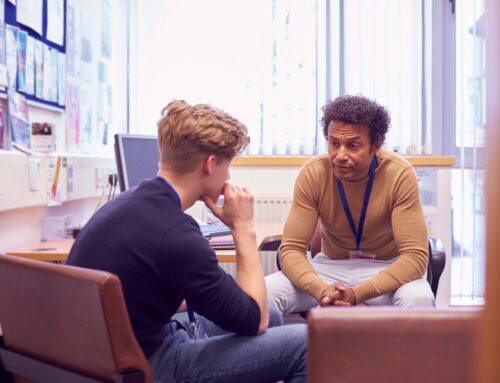Disabled Students’ Allowances (DSAs) are non-repayable grants covering study-related costs for disabled students. From 2016 to 2019, I was a recipient of the DSA during my time at university as I have autistic spectrum disorder and expressive-receptive language disorder. As someone with these disabilities, the opportunity to receive the DSA provided a lifeline for me. In this article I uncover what you’ll get and how to apply.

The process
It is strongly recommended that you apply for the DSA before you have a confirmed place at university so the support will be in place before you start studying. The process can take up to 6 months (for some applications), and the summer is usually the peak time for when DSA applications come in. Four types of allowances are available: non-medical helper’s allowance (e.g. for tutors, study skills sessions, interpreters), specialist equipment allowance, travel costs, and a general allowance. Unlike the maintenance loan, your parent’s/guardian’s/partner’s income does not factor into what you can get.
Eligibility
To be eligible, you must:
- Be enrolled on a full-time or part-time university course that is at least one year long (includes distance learning courses).
- Live in the UK (either as a UK student, an EU student who has lived in the UK for more than 5 years, or an international student who either has indefinite leave to live in the UK or has a settled status).
- Qualify for Student Finance (either Student Finance England, Student Finance Wales or Student Finance Northern Ireland. There is a similar process for Scottish students using the Students Award Agency for Scotland (SAAS) to receive the DSA).
- Have proof of your disability, medication condition, specific learning condition, mental health condition or sensory impairment and how it affects your ability to study.
For NHS students, there is a separate scheme for people with disabilities, NHS Disabled Students Allowances.
Step 1) – Apply for Student Finance and let them know you wish to apply for the DSA
Whilst applying for Student Finance, you can also apply for the DSA online at the same time. Student Finance will send you a Disability Evidence form for you to fill out. You can also download the forms needed to apply for the DSA on the UK government website.
On the government website page, click the green ‘start now’ button. The website will ask you a few questions: What type of student you are (full-time or part-time), what form you need, and for what year you need funding for. You will then be on the correct page where there are two types of forms: a full form or a slim form. There is also a PDF with instructions to guide you through the application available.
Whilst filling out the form, you will need your customer reference number handy. If needed, ask your parents/guardians to help you.
If you have a specific learning condition, you will need to send a diagnostic report from a qualified psychologist or specialist teacher. Note: You will need to have your diagnostic report reassessed if this was completed whilst you were under 16 years old.
Scottish students can apply for DSA through SAAS by downloading the forms here.
Step 2) – Gather evidence
Student Finance will send you a Disability Evidence form which will require you to submit evidence of your disability or medical condition to support your application, e.g. letters from a medical authority, diagnosis reports, a report from your teachers, etc. This form will also need to be signed by your GP or another healthcare practitioner.
Step 3) – The Assessment
After you send in your application, you will be asked to go to an Assessment Centre of your choice for a Needs Assessment.
For my Needs Assessment, my parents came with me. There is no need to worry about not being listened to by the Assessor as they write down everything you say for evaluation and are generally very kind. They will ask you how your disability/medical condition affects your everyday life and what kind of help you believe you would benefit from. My conversation with the Assessor lasted well over an hour. She told me what she thought I might benefit from and her recommendations, but said that the decision was ultimately in Student Finance’s hands. She sent her report off to Student Finance and emailed me a copy.
A little while later, I got the confirmation that I would be receiving the DSA.
What I received:
- Mentor (a person who helps you plan your day-to-day life, such as making a list of things you need to do or listening to you talk about any issues you may have, etc.)
- Study Skills Tutor (a person who helps you with your assessments, such as helping you organise your deadlines, finding resources, discussing your essay plans, etc.)
- Partially paid for laptop (I chose a MacBook Air, and my parents and I paid the difference.)
- Digital recorder
- Assistive software (Claroread, ClaroView, ClaroCapture)
- Brain in Hand app
- Printer and scanner
It was also recommended to the university to allow me to use a laptop during my examinations and have 15 extra minutes for every hour I was sitting an exam. In this case, Student Finance cannot force universities to act on this recommendation, but my university happily did so. I was also allowed to have extended deadlines on my coursework if I needed it due to anxiety/stress, which I did use a few times.
Taxi allowances are also available to some students.
Response
To say I was delighted at all the help I was receiving is an understatement. I had not received much help from my school so when we received the report describing all the support I would be getting, my mother cried.
During my time at university, I would regularly meet up with my mentor and my study skills tutor for an hour a week to discuss my concerns and about any upcoming assignments. My mentor and my study skills tutor were very helpful and friendly. It surprised me how invested they were in making sure that I achieved my goals at university, whether that be through helping me apply for extensions, reading through my essays or simply listening to me explain my ideas for a story I was writing. My examination arrangements were also very helpful, although the extra time meant that a 3-hour exam would become 3 hours and 45 minutes, which was a challenge.
Receiving the DSA massively benefitted me during my time at university. I doubt I would have gotten the results I had without it; the support I was given was incredible and I felt less stressed and more confident about my assignments and exams, knowing I had people to help me and methods to help me cope. So, if you’re thinking about applying, I would go for it!
Chloe Nicholson joined the Indigo team as an intern in 2019 and is a graduate from Aberystwyth University. She completed her bachelor’s degree in English Literature and Creative Writing in 2019. In her spare time she enjoys writing, reading and baking.





